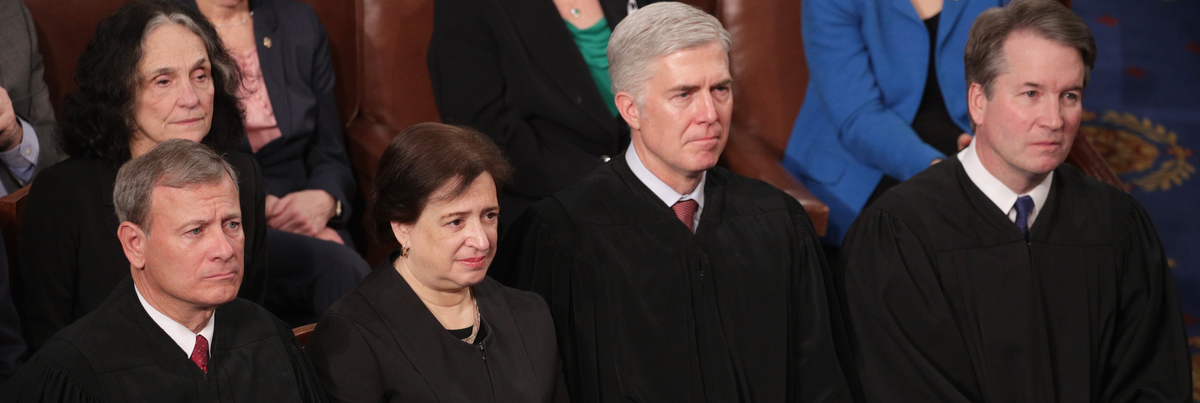The Supreme Court is in a familiar flux as it starts its October term. Only eight justices will serve on the court as it awaits the replacement of Justice Ruth Bader Ginsburg, who died in September. It’s a scenario that the court has faced several times in recent years with the death of Anthony Scalia and retirement of Anthony Kennedy.
Despite the vacancy, the Supreme Court itself enjoys a positive evaluation from Americans today — which is more than can be said for President Trump and for Congress. While 45% of voters approve of the way the current Court is handling its job, only 42% and 15% say the same for the current executive and legislative branch respectively. And while only 34% disapprove of the way the Court is working, majorities disapprove of President Trump’s (56%) and Congressional (60%) performance.
While voters divide on whether or not Barrett should be confirmed, they do not deny that she is qualified to serve on the Supreme Court, according to the latest Economist/YouGov Poll. By 48% to 27%, voters believe the nominee has appropriate credentials for the job.
However, nearly all these results have a partisan dimension. Nine in ten Trump voters say Barrett is qualified to serve but just 17% of Biden supporters agree.
The partisan split is even more clear when it comes to her potential confirmation. Nine in ten Trump voters (91%) would confirm her, compared to just 3% of Biden voters. Likewise, four in five (80%) Biden supporters would much rather delay any confirmation vote until after those elected in November take office: just 2% of Trump supporters would do the same.
Leave Roe v Wade and the Affordable Care Act in place, say voters
Many see the confirmation of Barrett as a harbinger of an attempt to get the Court to overturn its 1972 decision to permit abortions in all states, Roe v. Wade. A majority (55%), however, do not want to see this take place.
Likewise, about half (50%) would not want the Court to declare the Affordable Care Act (also known as Obamacare) unconstitutional either (only 34% do want it overturned). Both could happen – and soon, with cases dealing with both issues on the Court’s agenda.
See the toplines and crosstabs from this Economist/YouGov Poll
Methodology: The Economist survey was conducted by YouGov using a nationally representative sample of 1,500 registered voters interviewed online between October 4–6, 2020. This sample was weighted according to gender, age, race, and education based on the American Community Survey, conducted by the US Bureau of the Census, as well as 2016 Presidential vote, registration status, geographic region, and news interest. Respondents were selected from YouGov’s opt-in panel to be representative of all US citizens. The margin of error is approximately 4.5% for the overall sample.
Image: Getty









